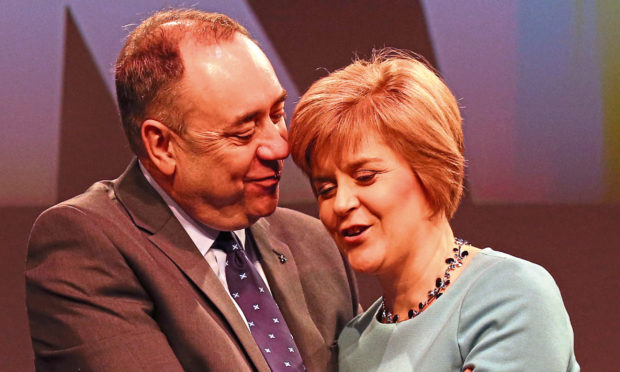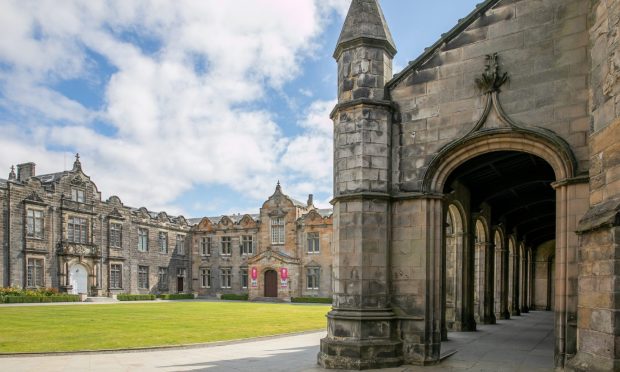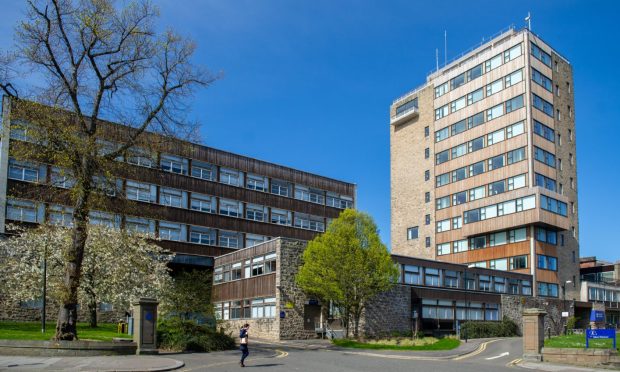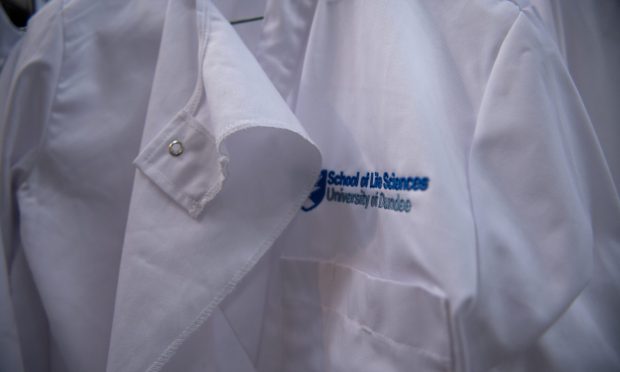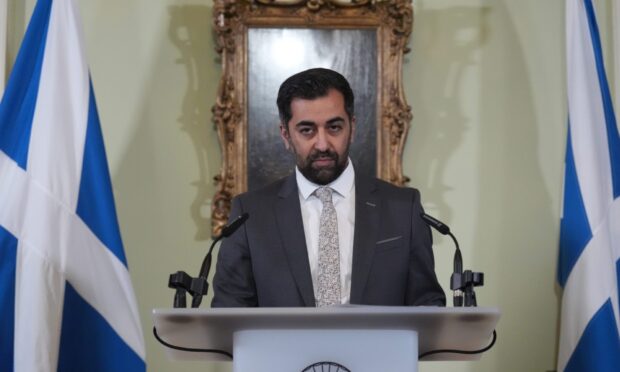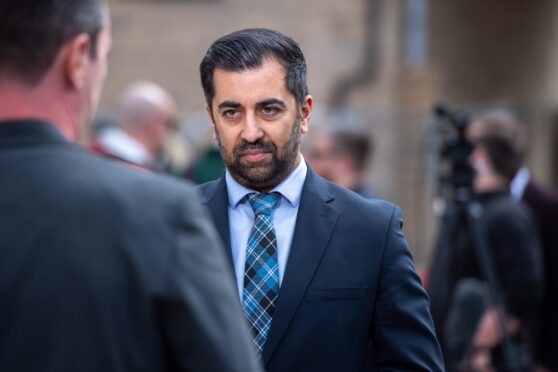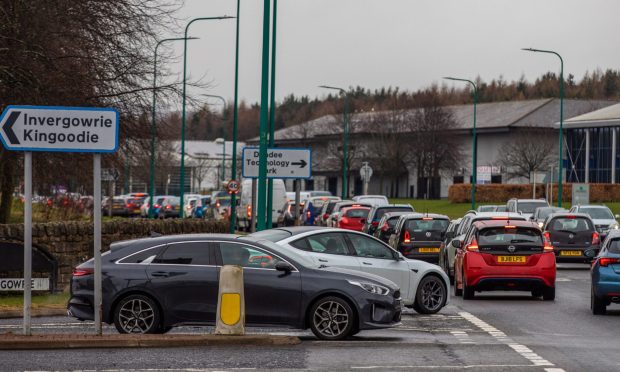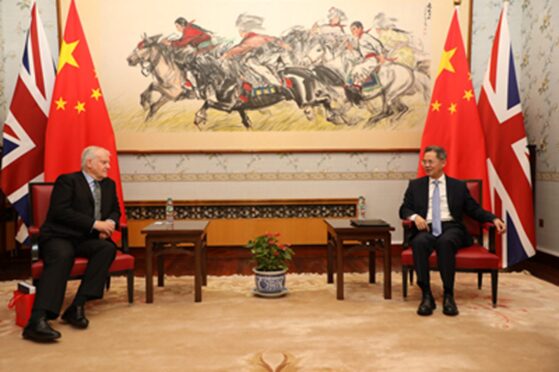The spat between Nicola Sturgeon and Alex Salmond is the biggest crisis in the SNP for 40 years, according to a respected professor.
An official spokesman for the First Minister accused Mr Salmond’s camp on Monday of trying to smear the head of government in an escalation of the war of words between the party’s most lauded figures.
Sir John Curtice, an expert on British politics, said the dispute is already the most acrimonious in the SNP’s history since bitter ideological divisions were exposed in 1979.
Ms Sturgeon referred herself to a standards panel on Sunday over her decision to repeatedly meet her predecessor while he was being investigated by the Scottish Government.
The Court of Session ruled last week that the probe into sexual misconduct allegations was unlawful because the investigating officer had prior contact with the complainants.
Ms Sturgeon’s team reacted furiously to newspaper reports on Monday quoting Salmond insiders, who claimed the first minister knew about the investigation before the date she publicly stated.
“This appears to be an attempt to smear the first minister,” her spokesman said.
“Suggestions by Mr Salmond’s ‘insiders’ that the first minister knew about the investigation before April 2 are not true.”
A spokesman for Mr Salmond, who denies the harassment allegations, responded insisting Ms Sturgeon’s chief of staff Liz Lloyd knew about complaints against the ex-FM before that first meeting.
The spokesman added: “Alex has no certainty as to the state of knowledge of the first minister before then (April 2).”
Mr Salmond’s spokesman added more important is the unlawful behaviour by the Scottish Government.
Calling for the head of the Scottish civil service’s resignation, he added: “The responsibility for that institutional fiasco lies at the door of the Permanent Secretary not that of the first minister. It is high time that the permanent secretary accepted it.”
Speaking to The Courier, the Strathclyde politics professor Sir John said: “The last time that there was a crisis of an equivalent scale in terms of an internal row is the row after the 1979 general election.
“But that of course was also an ideological one. It was to do with what the SNP stood for.”
The senior pollster said there is a “risk” te current dispute, which he describes as “for the most part a purely personal battle”, could develop into a wider ideological one, saying “clearly that tension is there”.
Mr Salmond has expressed support for striking early on a second independence referendum, whereas Ms Sturgeon is seen as more cautious.
The SNP was engulfed in a civil war when they were left with just two MPs in the 1979 election.
Mr Salmond was one of the 79 Group that wanted the SNP to be more left-wing and members defied the Nationalist leadership by encouraging and engaging in acts of civil disobedience.
Leaving EU without a deal
A no-deal Brexit is almost certainly not going to happen, a leading pollster has predicted.
Professor Sir John Curtice said any attempt by the Conservative Government to crash out of the EU would force its collapse given the opposition to the departure option in the Commons.
Sir John is due to attend The Courier’s Business Briefing in Dundee next month, marking 50 days until the Brexit due date.
Speaking to The Courier, the public opinion expert said executive boards are generally opposed to Brexit, but are worried about the dangers of defying the referendum result.
“The one thing that business clearly doesn’t want is leaving without a deal, but it’s pretty clear that that is not going to happen,” Sir John said.
“So despite (International Trade Secretary) Liam Fox’s protestations this morning it’s pretty clear the government will collapse if it tries to go for no deal.”
The politics professor at Strathclyde University said firms have “gone rather quiet” on their support for Theresa May’s deal in the hope of staying in the single market.
“Big business would be delighted if we would have a second EU referendum, we were all to change our minds and we would carry on as we were,” he said.
The president of the British Polling Council said businesses have fears over how that could be achieved, including whether it could lead to even more economic uncertainty that an orderly departure.
“It’s whether or not to take that risk,” Sir John said.
“Clearly the position of the CBI is that it’s better to take the bird in the hand than the one in the bush.
“But now it looks as though (Mrs May’s) deal is dead.
It seems to me as though business has kept rather quieter because they are hoping as a result we go for either Norway (not an EU member but in the European single market and customs union) or we go for a second EU referendum.”
- The briefing is being held at the Apex Hotel in Dundee on February 7. Visit thecourierbriefings.co.uk for details.
